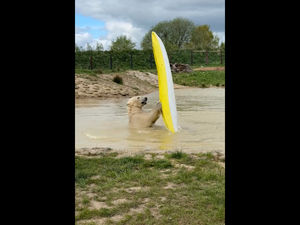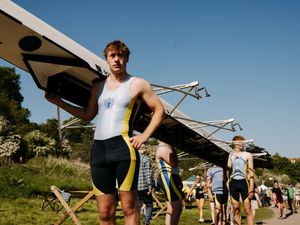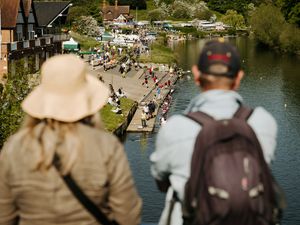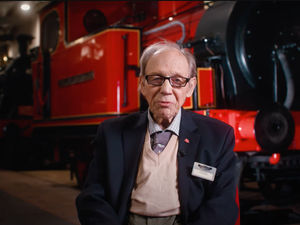TV review: Australia With Simon Reeve
Biker gangs are responsible for organised crime on Australia's Gold Coast. Hell's Angels and rival biker gang Bandidos dominate the nation's dark, sleazy underbelly; waging war to trade in drugs, prostitution and other illicit activities.
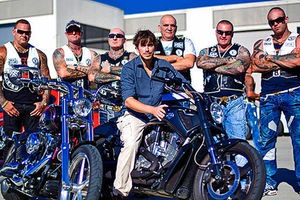
A fascinating expose by reporter Simon Reeve provided rare access to the world of bikers. He gained unprecedented access to a gang called the Finks, one of 39 outlaw motorcycle groups in Australia. Reeve's interview with them was extraordinary.
He quizzed tattooed gang members about their lifestyle, learning how they saw themselves as put-upon outsiders, rather than violent outlaws who live outside the law.
That episode was one of numerous in Reeve's travelogue. His programme provided a fascinating glimpse into the cultural diversity of life Down Under. In another excerpt, Reeve found himself assisted by the Surfers' Paradise Metermaids.
They were introduced to the Surfers' Paradise landscape in 1965 to address the bad image created by the installation of parking meters by the then-City Council. The young women, who were wearing gold lame bikinis and tiaras, have since been the face of Surfers' Paradise and have become a tourist attraction in their own right.
Reeve is a first class presenter. Charming and personable, he gets beneath the skin of his subject without adopting aggressive, Paxman-like tactics. He is an Everyday Joe. His interviewees were disarmed by his generosity of spirit and are happy to let him into their world.
Reeve met farmers on the Liverpool Plains whose once-productive land is now being strip mined by foreign conglomerates. The scale of environmental degradation was phenomenal.
While the world casts its judgemental gaze on African loggers, it seems Australian legislators actively encourage the destruction of some of the world's richest farm land.
Farmers were fighting back in true, eco-warrior, Swampy style. A group had waged a fiercesome campaign to protect Australia's food bowl from authorities who wanted to plunder £100 billion worth of coal from beneath their farmland.
Reeve's journey took him to other destinations. He seemed genuinely excited to arrive in Sydney, where he delved deep into the nation's links with Asia. He revealed Australia to no longer be a distant adjunct of Europe, or the USA.
An illuminating interview with a character called High Rise Harry, a Chinese ex-pat, showed the strength of Australia's connections with China. Harry was building 600 apartments at a time, with 70 per cent of those being sold to Chinese immigrants. The pace of immigration was breathtaking.
There were other glimpses into modern day Australia. Reeve took to the air to witness devastating bush fires as well as meeting the first Muslim ladies Aussie Rules Football team. He interviewed players who were regularly subjected to the sort of racist abuse that was commonplace in the UK in the dark days of the 50s, 60s and 70s.Finally, he stopped off in Melbourne to celebrate Australia Day.
Reeve's reportage made for first class TV. Unlike other travel reporters, like Stephen Fry or Paul Merton, he didn't seek to dominate or entertain. Instead, he let people tell their own stories. He stepped back and gave others space. The beauty of his hour-long film was in presenting a version of Australia that differed from the stereotype.
He showed it to be a difficult, challenging place with an optimistic and celebratory spirit. He showed the nation at its dignified best.
Andy Richardson


